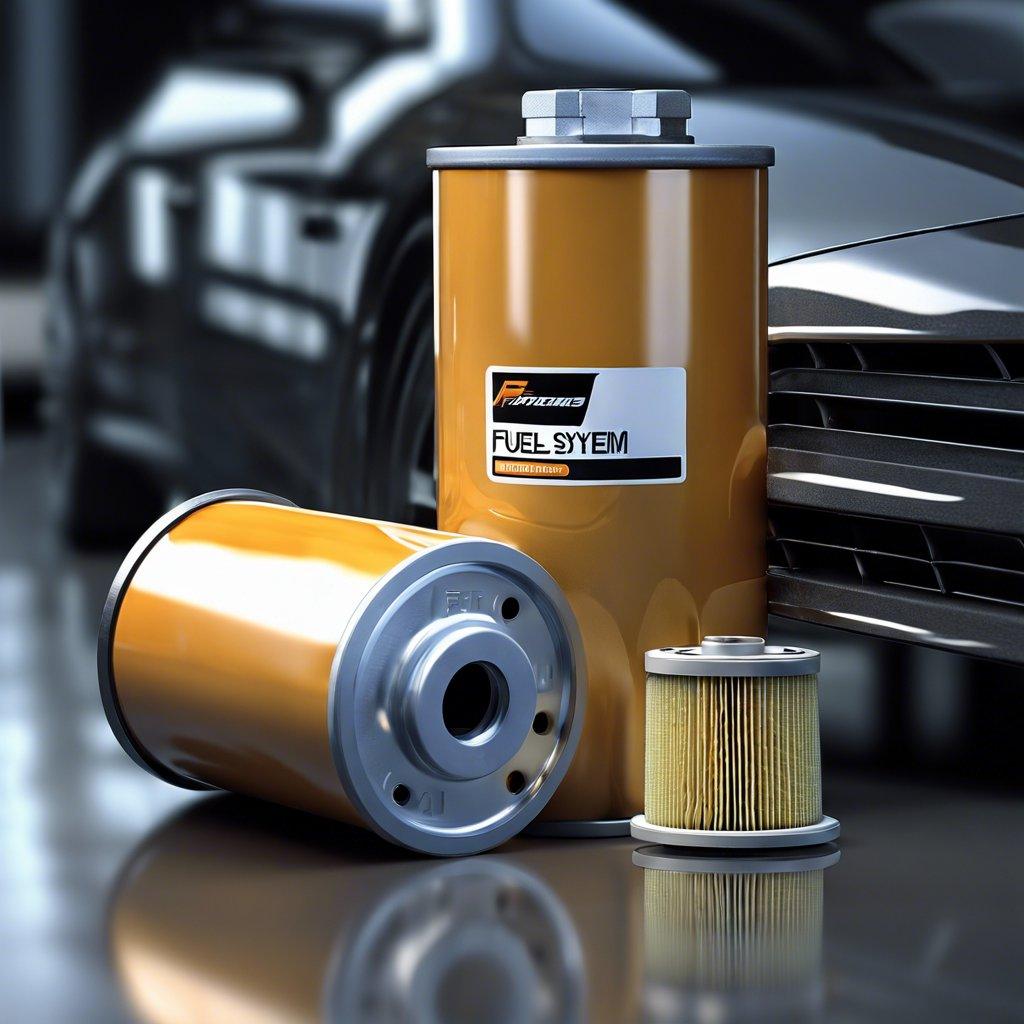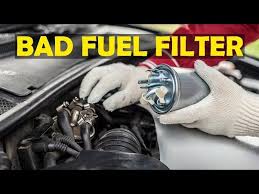How to Ensure Your Fuel Filter is Always in Top Condition
Unlocking Peak Fuel Efficiency: Regular Fuel Filter Maintenance

Keeping Your Fuel Filter in Top Shape
Maintaining the fuel filter in your vehicle is crucial for ensuring peak fuel efficiency and engine performance. The fuel filter plays a vital role in trapping contaminants and impurities, protecting sensitive fuel system components from damage. Regular fuel filter maintenance is the key to unlocking your vehicle’s full potential.
Recognizing the Signs of a Clogged Fuel Filter
A clogged or dirty fuel filter can cause a range of issues, including reduced fuel flow, decreased engine power, and even stalling. Some common signs to watch out for include:
- Decreased fuel efficiency
- Hesitation or sputtering during acceleration
- Difficulty starting the engine
- Increased engine noise or vibration
If you notice any of these symptoms, it’s crucial to have your fuel filter inspected and replaced as needed.
Establishing a Maintenance Routine
The recommended frequency for fuel filter replacement varies based on your vehicle’s make, model, and driving conditions. Typically, it’s advised to replace the fuel filter every 30,000 to 50,000 miles, or as specified in your owner’s manual. Maintaining a consistent fuel filter replacement schedule can help ensure the longevity of your vehicle’s fuel system and maximize fuel efficiency.
Choosing the Right Fuel Filter
When replacing your fuel filter, it’s essential to select a high-quality, OEM-recommended filter that is compatible with your vehicle. Inferior or generic filters may not provide the same level of protection, potentially leading to future issues. Consult your owner’s manual or a trusted automotive professional to ensure you’re using the correct fuel filter for your specific make and model.
Fuel Filter Replacement: A Step-by-Step Guide
| Step | Action |
|---|---|
| 1 | Locate the fuel filter, typically found near the fuel tank or along the fuel line. |
| 2 | Disconnect the fuel line connections, taking care to avoid spills or leaks. |
| 3 | Remove the old fuel filter and dispose of it properly. |
| 4 | Install the new fuel filter, ensuring it is properly aligned and secured. |
| 5 | Reconnect the fuel line connections and check for any leaks. |
| 6 | Start the engine and inspect for any issues or unusual noises. |
Following these steps carefully can help ensure a smooth and successful fuel filter replacement process.
Safeguarding Your Engine: Identifying and Addressing Fuel Filter Issues
Understanding the Importance of Fuel Filters
Fuel filters play a crucial role in maintaining the health and performance of your engine. They are responsible for removing contaminants, such as dirt, rust, and other impurities, from the fuel before it reaches the engine. A well-functioning fuel filter ensures that your engine receives clean fuel, which is essential for efficient combustion and optimal engine performance.
Identifying Fuel Filter Issues
Recognizing the signs of a problematic fuel filter is the first step in addressing the issue. Some common symptoms of a faulty fuel filter include:
- Decreased Fuel Efficiency: A clogged fuel filter can restrict fuel flow, leading to reduced engine performance and lower fuel efficiency.
- Difficulty Starting the Engine: A blocked fuel filter can prevent the engine from receiving the necessary fuel, making it harder to start.
- Reduced Engine Power: If the fuel filter is not allowing enough fuel to reach the engine, you may experience a noticeable drop in engine power and acceleration.
Maintaining and Replacing Fuel Filters
Regular maintenance and replacement of your fuel filter are essential to ensure its optimal performance. The recommended frequency for fuel filter replacement varies depending on the manufacturer’s guidelines and the specific operating conditions of your vehicle.
| Fuel Filter Replacement Interval | Typical Mileage |
|---|---|
| Light-Duty Vehicles | 12,000 to 24,000 miles |
| Heavy-Duty Vehicles | 15,000 to 30,000 miles |
It is important to follow the manufacturer’s recommendations and replace the fuel filter at the specified intervals to maintain engine performance and prevent costly repairs.
Proactive Maintenance Strategies
To ensure your fuel filter remains in top condition, consider implementing the following proactive maintenance strategies:
- Regular Inspections: Visually inspect the fuel filter for any signs of damage, such as cracks, leaks, or corrosion, during routine maintenance.
- Fuel System Cleaning: Periodically clean the fuel system, including the fuel tank and fuel lines, to remove any accumulated debris or contaminants.
- Fuel Quality Monitoring: Monitor the quality of the fuel you are using and consider using a fuel additive or stabilizer to help maintain the cleanliness of the fuel system.
By following these best practices, you can help extend the lifespan of your fuel filter and ensure your engine continues to operate at peak performance.
Fuel Filter Fitness: Proactive Steps to Optimize Performance
Maintain Fuel Filter Integrity
Ensuring your fuel filter is in top condition is crucial for the optimal performance of your vehicle. A well-maintained fuel filter can extend the life of your engine, improve fuel efficiency, and prevent costly breakdowns.
Regular Inspections and Replacements
Regularly inspecting and replacing your fuel filter according to the manufacturer’s recommendations is essential. Over time, the filter can become clogged with debris and contaminants, reducing fuel flow and causing engine issues.
Fuel Quality Matters
Using high-quality fuel can help extend the life of your fuel filter. Impurities and additives in lower-grade fuels can accelerate the buildup of deposits, leading to premature filter failure.
Develop a proactive maintenance plan to ensure your fuel filter is always in top condition. This may include:
- Regular inspections to check for any signs of wear or clogging
- Timely replacements based on the manufacturer’s recommendations
- Fuel system cleaning to remove accumulated deposits
Fuel System Compatibility
Ensure that the fuel filter you choose is compatible with your vehicle’s fuel system. Using the wrong filter can lead to performance issues or even engine damage.
| Maintenance Task | Frequency |
|---|---|
| Fuel Filter Inspection | Every 6 months or 6,000 miles |
| Fuel Filter Replacement | Every 12 months or 12,000 miles |
| Fuel System Cleaning | Every 24 months or 24,000 miles |
By following these proactive steps, you can ensure your fuel filter is always in top condition, optimizing the performance and longevity of your vehicle’s engine.
Fuel Filter Fortitude: Ensuring Uninterrupted Power and Reliability
Maintaining Fuel Filter Efficiency: A Key to Uninterrupted Performance
In the realm of engineering and technology, where productivity and reliability are paramount, the importance of a well-functioning fuel filter cannot be overstated. The fuel filter plays a crucial role in ensuring the smooth and efficient operation of your machinery, safeguarding against the detrimental effects of contaminants and impurities within the fuel system.
Proactive Maintenance: The Key to a Healthy Fuel Filter
Regularly inspecting and maintaining your fuel filter is essential to preserving its integrity and ensuring its optimal performance. By adhering to the manufacturer’s recommended service intervals, you can extend the lifespan of your fuel filter and mitigate the risk of unexpected breakdowns or decreased engine efficiency.
The Consequences of a Neglected Fuel Filter
Neglecting the fuel filter can have dire consequences for your equipment’s performance and longevity. Clogged or damaged filters can restrict fuel flow, leading to reduced engine power, decreased fuel efficiency, and even complete engine failure. Addressing these issues promptly is crucial to maintaining the reliability and productivity of your operations.
Fuel Filter Fortification: Strategies for Optimal Performance
To ensure your fuel filter remains in top condition, consider the following strategies:
- Regular Inspection: Closely monitor the condition of your fuel filter, checking for signs of wear, clogging, or damage. Adhere to the manufacturer’s recommended replacement intervals to maintain optimal performance.
- Fuel Quality Vigilance: Ensure the fuel you use is of the highest quality, free from contaminants and impurities that can compromise the integrity of your fuel filter.
- Proactive Replacement: Replace the fuel filter at the first sign of deterioration or according to the manufacturer’s guidelines to prevent costly downtime and equipment damage.
Fuel Filter Fortitude: Preserving the Heart of Your Machinery
By prioritizing the maintenance and care of your fuel filter, you can safeguard the reliability and efficiency of your engineering and technology equipment. Embrace a proactive approach to fuel filter management, and reap the benefits of uninterrupted power, enhanced performance, and reduced maintenance costs.
| Key Considerations | Recommended Actions |
|---|---|
| Fuel Filter Inspection | Conduct regular visual inspections for signs of wear, clogging, or damage. |
| Fuel Filter Replacement | Replace the fuel filter according to the manufacturer’s recommended intervals or at the first sign of deterioration. |
| Fuel Quality Monitoring | Ensure the fuel used in your equipment is of the highest quality, free from contaminants and impurities. |
By embracing these strategies, you can fortify your fuel filter and safeguard the reliability and performance of your engineering and technology equipment, ultimately enhancing productivity and reducing maintenance costs.




Post Comment